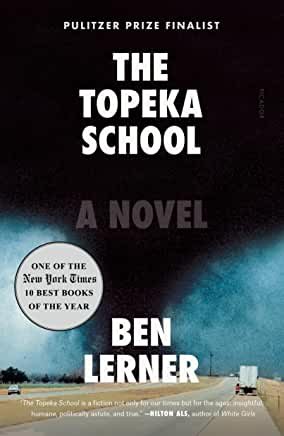The Unstable nature of fact and fiction…
The Topeka School
By Ben Lerner
In a recent essay Maryanne Wolfe, esteemed educator and author of Proust and The Squid, speaks about the changing nature of how we read in the digital age and due to the overwhelming amount of information we’re exposed to every day. She proposes that as a result fewer people now read deeply. The Topeka School is an autofiction that to be truly appreciated requires that it be read deeply. The story unfolds over 282 pages conveying a narrative in different voices, in different times, and shifting between 1st and 3rd person. Although sometimes jarring, this form is imposed on the reader to great purpose and satisfaction.
This nonlinear narrative on the surface may be viewed as a complicated coming of age story but goes well beyond to reveal a view of contemporary American culture, art, and values. The reader will likely question the transcendent possibilities of language, the truth or reality of memory, the definition of masculinity, the power dynamics between women and men, and our perceptions of our collective life.
The final chapter is aptly titled Apperception: defined as a mental process by which a person makes sense of an idea by assimilating it to the body of ideas she/he/they already possesses. The process of a deep reading, not unlike viewing meaningful art, is itself a revelation of our individual and collective landscapes.
The New York Times named The Topeka School one of the 10 Best Books of the Year; Barak Obama said it is his favorite book of the year, and it’s the winner of numerous awards. Ben Lerner, raised in Topeka, Kansas, is an American poet , novelist, essayist, a Fulbright Scholar, and recipient of Guggenheim and MacArthur Foundation fellowships.
Reviewed by Mitch Glassman, 10 November 2022

